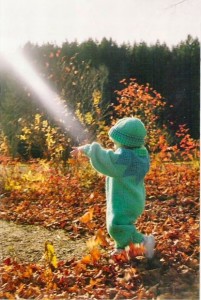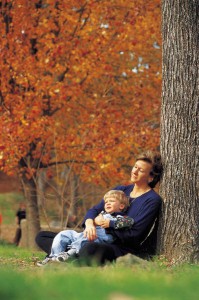T is for thank you and time together and how these influence children, especially in terms of social and emotional growth and development. The next alphabet letter for October’s posts isn’t T, but it is Thanksgiving in Canada, if not in the US or Mexico, and that’s one-third of North America.  Saying thank you is more than an courteous social skill. It’s an attitude that affects our interactions with others and even our mental health and well-being. Kids are often not grateful to adults at all. At this age, they are very egocentric, but we can help them with learning how and when to use the words to say thank you, as well as please, you’re welcome, and others. Did you know that social skills will tremendously impact children’s success not just at school, but afterwards as well? The American Journal of Public Health published some research that followed a group for twenty years from the time they started kindergarten. The results indicated that when it came to success academic skills were overshadowed by social skills. Host, Audie Cornish, of NPR National Public Radio discussed the findings in her podcast Nice Kids Finish First. She suggested that putting ourselves in a group of kindergarten kids and…
Saying thank you is more than an courteous social skill. It’s an attitude that affects our interactions with others and even our mental health and well-being. Kids are often not grateful to adults at all. At this age, they are very egocentric, but we can help them with learning how and when to use the words to say thank you, as well as please, you’re welcome, and others. Did you know that social skills will tremendously impact children’s success not just at school, but afterwards as well? The American Journal of Public Health published some research that followed a group for twenty years from the time they started kindergarten. The results indicated that when it came to success academic skills were overshadowed by social skills. Host, Audie Cornish, of NPR National Public Radio discussed the findings in her podcast Nice Kids Finish First. She suggested that putting ourselves in a group of kindergarten kids and…
“try and predict which one of them might finish college and get a good job two decades down the road. Is it the kid who knows her ABCs or the kid who has a good memory? Well, new research has tracked children from kindergarten into young adulthood, and it’s found that the most important predictors of long-term success are not intellectual skills but social and emotional ones.”
 While this is the date for Thanksgiving in Canada, it’s also the date for Columbus Day in the US and many families will have a long weekend. Besides being grateful, there are other considerations like having time to be together. These connections to a group help children develop a sense of belonging, of being a part sort of something that stretches beyond the present into the past. This idea of an “intergenerational self” fills a deep emotional need and contributes to resilience in both kids and adults, (Duke and Fivush). A play-of-the-day could be enjoying an activity and saying thank you for time together, a Thanksgiving no matter where you live.
While this is the date for Thanksgiving in Canada, it’s also the date for Columbus Day in the US and many families will have a long weekend. Besides being grateful, there are other considerations like having time to be together. These connections to a group help children develop a sense of belonging, of being a part sort of something that stretches beyond the present into the past. This idea of an “intergenerational self” fills a deep emotional need and contributes to resilience in both kids and adults, (Duke and Fivush). A play-of-the-day could be enjoying an activity and saying thank you for time together, a Thanksgiving no matter where you live.
